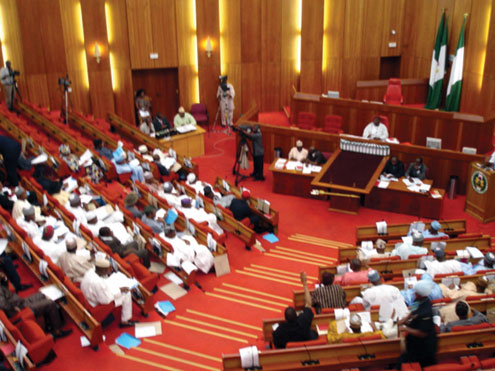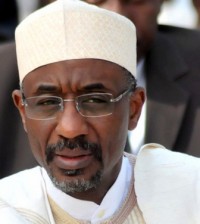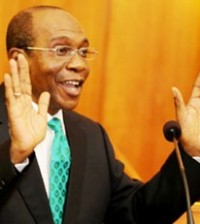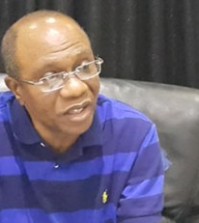FG’s Fertiliser Subsidy Is Fraudulent – Sanusi
THE Central Bank of Nigeria (CBN) governor, Mallam Lamido Sanusi, on Monday, said the subsidy on fertilisers to Nigerian farmers by the Federal Government is a fraud, saying that only about 11 per cent of the subsidised fertilisers get to the farmers.
The CBN boss, who made this known during an interactive session with the House Committee on Agriculture, said most bags of fertilisers getting to the farmers “are half sand and half fertilisers.”
He equally lamented that “the nation’s agricultural sector is underperforming and under-funded,” adding that, “the fertilisers supplied to farmers do not actually weigh up to 50kg.”
Part of the problems facing the agriculture sector, according to him, was that the nation’s banking sector found it difficult to invest in it, because values of commodities were yet to be fixed in the country.
“It is difficult to fix the financial value chain until the nation can fix the commodity value chain,” he said, adding that the CBN would find a way to unlock funds for investment.
According to him, “Nigeria’s agriculture sector has enormous potential with an opportunity to grow output by 160 per cent from N14.85 trillion today to N38.4 trillion by 2030.”
Mallam Sanusi also lamented that the nation had lost dominant position in exports of key crops like cocoa, groundnuts, groundnut oil and palm oil since 1960, saying that “in the 1960s, Nigeria had over 60 per cent of global palm oil exports, 30 per cent of global groundnut exports, 20 to 30 per cent of global groundnut oil exports and 15 per cent of global cocoa exports.”
He said by 2000, Nigeria global share of exports of each of these crops was five per cent or less.
Sanusi mentioned insufficient insurance as factor militating against the growth of the sector, saying that “only 500,000 of Nigeria’s agricultural producers have access to insurance.”
Speaking earlier, chairman of the committee, Honourable Mohammed Moguno, had said the reason they invited the Ministry of Agriculture and agencies under it was to cross fertilise ideas on the challenges facing the sector, with a view to finding lasting solutions to them.








